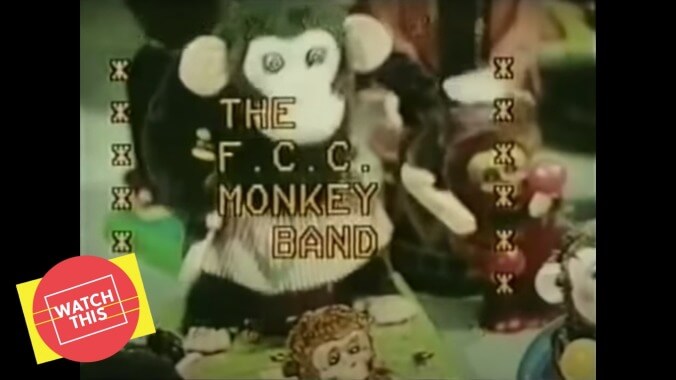Werner Herzog takes a limo ride into the heart of evangelical darkness in “God’s Angry Man”

Watch This offers movie recommendations inspired by new releases, premieres, current events, or occasionally just our own inscrutable whims. This week: With Werner Herzog’s Fireball: Visitors From Darker Worlds hitting Apple TV+, we’re highlighting some of the iconic director’s best documentaries.
“God’s Angry Man” (1981)
With their tacky suits and blatant hypocrisy, televangelists are easy targets for parody. Even Werner Herzog, that great stone-faced chronicler of existential despair, can’t resist taking a couple potshots in his 1981 short film “God’s Angry Man.” The film profiles Dr. Gene Scott, the Los Angeles-based TV preacher who became a media lightning rod in the late ’70s and early ’80s—thanks in part to his late-night time slot, which drew, as Scott calls them, “night people” to watch his program, The Festival Of Faith, presumably while smoking the devil’s lettuce. Scott was being investigated by the IRS and the Federal Communications Commission when Herzog filmed this 43-minute documentary for German TV. Both agencies took a pointed interest in where the hundreds of thousands of dollars Scott claimed to raise every week were going, exactly—charges that Scott answered with nonsensical ranting and an “FCC Monkey Band” composed of wind-up chimps.
The federal government holding a TV preacher to account seems downright quaint in our current era, when the proliferation of the so-called prosperity gospel has made the line between con man and holy man thinner than ever. And although he was a regional oddity compared to big-name TV preachers like Jim Bakker, Jerry Falwell, and Billy Graham, Scott was, for all his eccentricities, part of the emergence of evangelical Christianity on the national political stage. With that came the rise of old-time religion as big business, a theme that Herzog deftly (and sometimes sarcastically) explores throughout the film. In one segment, Scott describes, while sitting in the back of a limousine, the many subsidiaries of his church like he’s the CEO of a multinational corporation; in another, he sits in petulant silence while the cameras roll, refusing to preach another word until another $1,000 in donations comes in. All the while, he talks in a hushed, even tone that seems to contradict the film’s title. But an intensity burns behind his narrowed eyes, and eventually, he erupts on live TV, first screaming at viewers to donate, then exploding with anger that they didn’t cough up the cash sooner. Let the circus begin.

 Keep scrolling for more great stories from A.V. Club.
Keep scrolling for more great stories from A.V. Club.